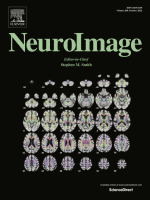
Re-opening the Critical Period for recovery after Stroke
News
Paper published!
Our paper shows the importance of controlling for direction of electric current when applying non-invasive brain stimulation (link).
The direction that electric current flows varies substantially across people.
Depending on the electrodes are placed on the head, we may also be targeting different movement pathways.
Current direction should be controlled by personalising electrode locations for each individual.
10/08/22
N-ROL - evaluation of group-based telerehabilitation published!
The results are in!
Last year's N-ROL programme was created to provide telerehabilitation to those recently discharged from hospital with acquired brain injury.
Here you can read the first set of results evaluating the programme.
07/07/21
Introducing - the ARM Lab
With our research team continually growing we thought it was time we put a name to it - the ARM Lab.
Headed by Prof. Nick Ward & Prof. Sven Bestmann, the ARM Lab has two key aims:
-
Better understand the neural underpinnings of movement
-
Improve treatment of movement disorders



03/02/21
ReCAPS Study is just one in many exploring ways to improve recovery after stroke.
Click here to find out more about the ARM Lab and what we do.
You can also follow us on Twitter.
World Stroke Day 2020 - this year we went virtual!
The pandemic meant we had to do the UCL World Stroke Day Forum a little differently this year.
Whilst we love to see you in person, launching the forum virtually enabled us to reach a wider audience and extend the event over several days!
Lots of great content - including talks and helpful resources - is still available for you to enjoy. Check them out here.

01/11/20
ReCAPS Study continued
After a 6 month pause, the ReCAPS Study has restarted.
Additional measures have been put in place to minimise risk related to COVID-19 transmission. Please see our dedicated COVID-19 page to know more.
We are now recruiting participants. If you would like to know more, please contact us.

05/10/20
Telerehabilitation during lockdown
In the unprecedented times of the COVID-19 pandemic it is important to find innovative ways to continue to support people with brain injury.
N-ROL offers telerehabilitation to those recently discharged from hospital.

Funded through Emilia Clarke's SameYou charity, N-ROL delivers virtual group sessions covering the following:
physiotherapy, occupational therapy, speech and language therapy, cognitive strategy, fatigue management, emotional support
Click here if you would like to find out more or to contribute to the SameYou's COVID-19 Emergency Response
29/04/20
ReCAPS Study paused due to Pandemic
Due to current isolation measures in place during the COVID-19 pandemic, the ReCAPS Study is on hold until these measures have been lifted.
During this time you are still welcome to contact us and we will get back to you as soon as possible.
We hope that you and those close to you are safe and well.

28/03/20
Different Strokes
The ReCAPS team were kindly invited by Different Strokes to speak to stroke survivors about the study at their Central London Exercise Group.
It is always rewarding to get feedback and encourage stroke survivors to take part in research.
Different Strokes is a community of stroke survivors and their families that aims to promote independent stroke recovery through peer support.
Visit their website to find out more about the charity or find a support group in your area.

15/01/20
The ReCAPS team joined fellow researchers and clinicians at the UCL World Stroke Day Forum. We spoke to stroke survivors about our study and updated them on the latest in Stroke Research and Rehabilitation.


World Stroke Day 2019



30/10/19
Paper published!

Our paper Dose-controlled tDCS reduces electric field intensity variability at a cortical target site was published in Brain Stimulation this month (link / bioRxiv).
In this paper we provide a simple method for tailoring the "dose" of tDCS to an individual, rather than applying the same dose of tDCS to everyone.

By dose-controlling tDCS, we can eliminate the variability in electric current reaching the area of the brain we are targeting. We hope that this will result in more consistent changes in physiology/behaviour induced by tDCS.
04/10/19






